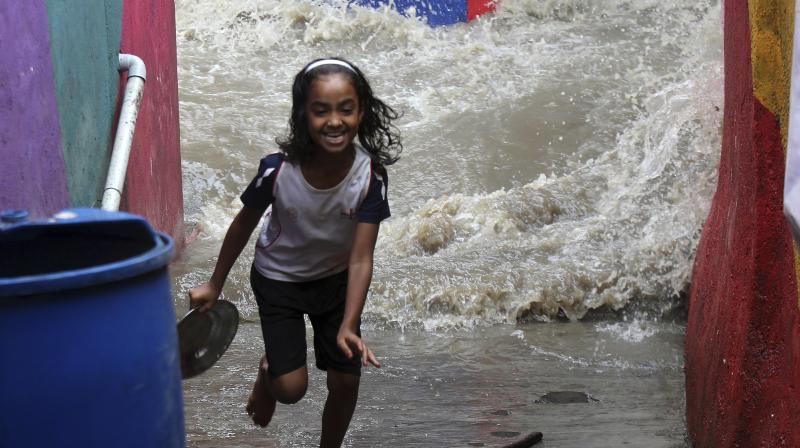India witnesses spurt in water-borne diseases with arrival of monsoon

With the onset of monsoon all over India, a lot of people are falling prey to water-borne diseases in the country. Of the total patients visiting the OPD of the paediatrics unit at the Women and Children Hospital, were found to be affected by diarrhoea, cholera, fever, vomiting, stomach infection and jaundice (hepatitis A and E). A majority of these patients are affected after consuming contaminated water. Experts added that during the rainy season, children are more vulnerable to various types of infections owing to consumption of contaminated water or food items prepared with it.
The World Health Organization which has already identified drinking water contamination as a critical public health issue in India has estimated that more than 98,000 children suffer from acute diarrhoea and other water-borne diseases every year. A consultant for internal medicine at the Bangalore-based Aster CMI hospital, Dr Bindu gives an inside account of the situation and how to prevent these diseases.
Which are the most common and dangerous water-related diseases? Factors that affect our health the most during monsoon?
A most common disease in monsoon is Dengue, Malaria, Typhoid, Hepatitis A and E.
Water born disease are: Typhoid, Hepatitis A, Acute gastroenteritis
Dos and don’ts to prevent infections?
Dos:
· Drink water from safe sources, or drink boiled or chlorinated water
· Eat properly cooked food
· Wash vegetables before cooking; avoid fruits that are cut and left in the open
· Ensure proper disposal of waste and human excreta
· Always wash hands well, both before and after consuming food
· To prevent dehydration take as many fluids with salt and sugar viz.
– salted yoghurt drink
– vegetable or chicken soup with salt
– salted rice water
– Commercially available oral rehydration salts (ORS).
Don’ts:
Don’t self medicate
Antibiotics are not antidiarrhoeals and have no role in the treatment of diarrhoeas. These are however indicated when blood is passed along with faeces (dysentery).
Do not self-medicate with antibiotics.
Help prevent the emergence of resistance to antibiotics!
What can help in recovery/prevent from these diseases, please elucidate?
Antibiotics are life-saving in typhoid fever. Take them in prescribed doses and for the recommended number of days.
Any Expert Suggestion?
Viral hepatitis (enterically transmitted). Hepatitis—inflammation of the liver—is caused by several viruses designated as A, B, C, D, E etc. It mainly manifests as yellow discolouration (jaundice) of the skin and the eyes, some abdominal discomfort, loss of appetite, and passage of dark urine and pale stools. Hepatitis A and E are acquired by consuming food and water contaminated by the virus (excreted in a patient's stool). The disease manifests in 2–8 weeks of ingesting contaminated food or water and usually resolves without any complications, except in pregnant women. Hepatitis E virus commonly causes acute community outbreaks of jaundice. Vaccine for hepatitis A is available but no vaccine is available for hepatitis E. No drugs are available for treating hepatitis A and E
Precaution
Consult a physician for vaccination against hepatitis A
Pregnant women should take precautions against
Hepatitis E by consuming only safe water. Hepatitis E may occur in a fulminant or severe form in pregnancy
Avoid self-medication.
Antibiotics have no role in the treatment of hepatitis A and E.

